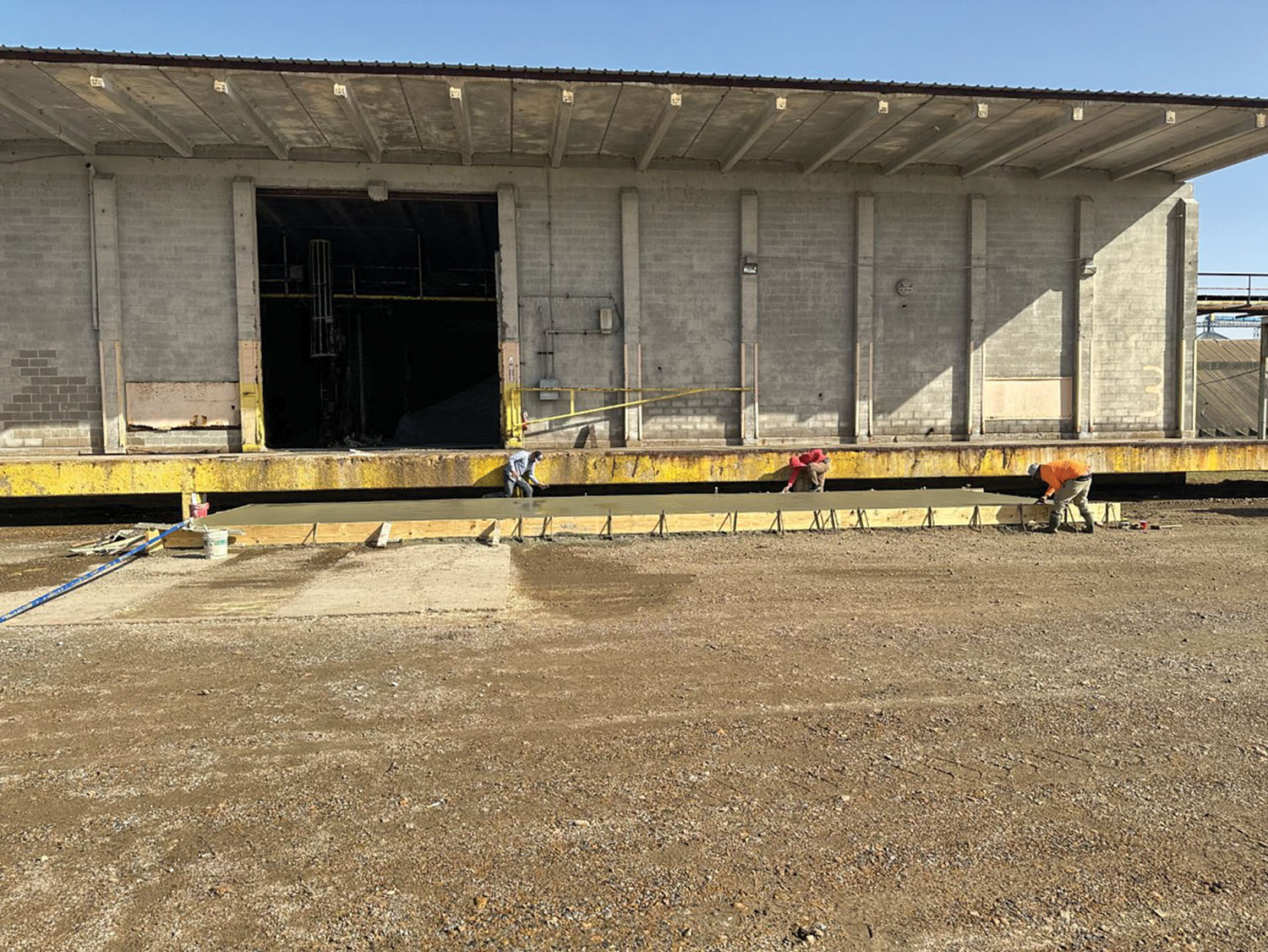Scates Group Intermodal (SGI) has taken over operation of a private terminal on the Lower Mississippi River in Helena, Ark.
SGI took over operation of the former Griffin River Terminal, now named Scates Group Intermodal Helena River Terminal, on February 27. The company has a three-year lease on the property at 1305 Highway 20 in Helena, at Lower Mississippi Mile 660.2, and an option to purchase it at the conclusion of that period, SGI President Patrick Scates said.
The terminal offloads both dry and liquid fertilizer from barges and places it in dry storage, where it is available to be custom-blended and shipped to customers, Scates said. The facility has four warehouses with a total of 66,000 tons of dry fertilizer storage availability as well as room for 17,500 tons of liquid fertilizer in six tanks. It also includes a 338,000-bushel grain storage facility with two flat tanks and a hopper tank.
The wharf has one grain position, two fertilizer positions and fleeting for 28 barges on site. It also has a 150-ton crane with clamshell bucket, winch, loading hopper and switch boats on call 24 hours a day.
Transport of dry and liquid products between barge, rail, truck and storage units is available by conveyor or pipeline, moving 300 tons or 30,000 bushels per hour on a 30-inch belt and an 8-inch pipe.
SGI retained the terminal’s 12 employees, including long-time terminal manager Tommy Light.
SGI announced last year that it had purchased property in Shawnteetown, Ill., and had agreed to a long-term lease of river frontage, including two existing mooring cells, to the Shawneetown Regional Port District. The company has invested $3 million as part of a $14.1 million public/private investment to turn a former coal-loading facility into one for offloading fertilizer on the Ohio River.
“Since getting in the terminal business, we were already looking to expand,” Scates said. “With some of the relationships and partnerships we already have, we heard about this facility.”
He also said he was able to inspect the terminal in November, during historic low-water conditions. While some neighboring ports had to halt business because of the conditions, the terminal has deep-water access and remained operational, he said. He also noted the terminal was ideally positioned for transloading, with nearby grain companies including Poinsett Rice, Consolidated Grain & Barge and ADM.
Almost immediately upon finalizing the lease, SGI began making upgrades. On the same day the deal became final, crews began work pouring concrete that will allow for the addition of two new 13-ton blenders that will supplement the existing two 8-ton blenders. While it had previously taken about 45 minutes to get a blend out to a customer, it now should take about 20 minutes, Scates said.
Additionally, he said, the extra capacity will help during peak season and add redundancy to ensure reliability for customers.
“We think with these upgrades we’ll be able to show people that it is able to run more efficiently than it has in the past,” Scates said.
One key advantage of the Helena terminal is that it has rail access available for anyone who would prefer to barge fertilizer in and send it directly to rail. The rail line can fit 100 cars per train and is serviced by the Genessee & Wyoming short line off of the Union Pacific Railroad.
“We’re fortunate enough to have a really good rail into this terminal, and we plan to use it,” Scates said.
The Helena terminal will share some management with the Shawneetown terminal, which is a five-hour drive away, Scates said. He added that since the planting season is earlier in Helena than in Shawneetown, it lets the company plan for appropriate staffing at both facilities
Scates added that an aspect of the terminal business that sets SGI apart from others is that the family behind it not only own businesses but also are farmers themselves. That means they have a “farmer mentality,” Scates said.
“You have to operate your facility according to the farmers’ and the retailers’ availability,” he said. “There are only so many days in the planting season, and we have to take advantage of every single hour during that time, even if it means opening early and staying late.”
He added that the business is looking forward to getting to know its neighbors better and to accommodating their needs.
“We are excited about the improvements we are making, but we are even more excited to get to know more of the local farmers and retailers to get their input on what other improvements can be made at the terminal to help their operations,” Scates said. “As a farm family, we understand you have to be flexible, and we are planning to be here for the agriculture community during their ‘go time.’ ”




